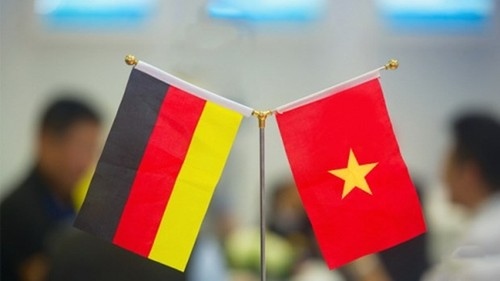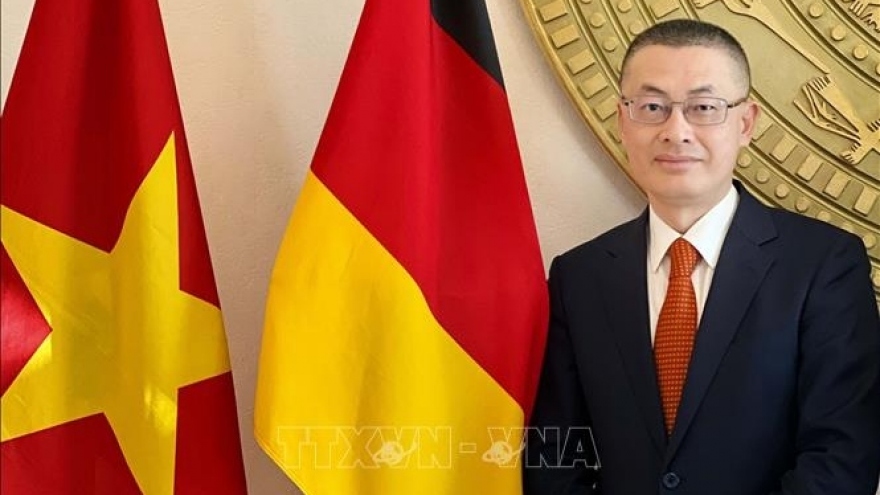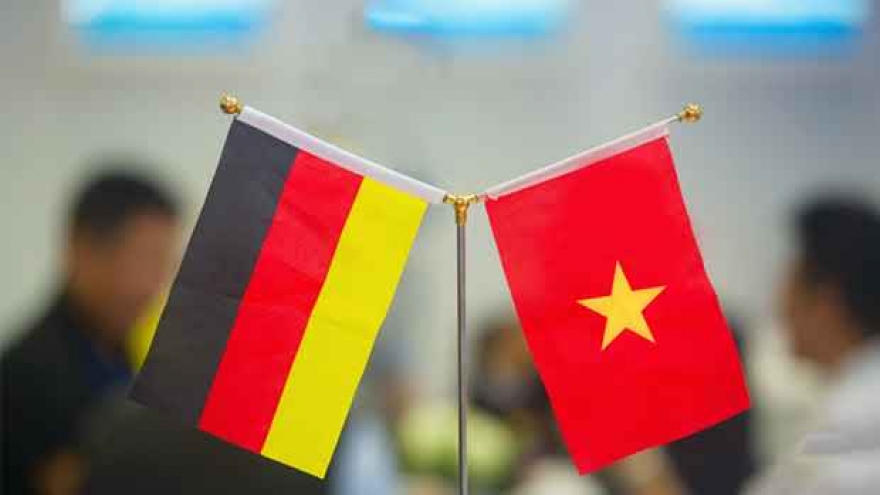German President’s Vietnam visit expected to add strong impetus to bilateral ties
VOV.VN - The forthcoming state visit to Vietnam by German President Frank-Walter Steinmeier is expected to take bilateral relations to new heights, German Ambassador to Vietnam Guido Hildner said in a recent media
interview given ahead of the trip which is set to take place from January 23 to January 24.
interview given ahead of the trip which is set to take place from January 23 to January 24.
According to the German diplomat, the trip will be a highlight in the relations between both sides this year.
The visit is the personal wish of President Steinmeier, Ambassador Hildner said, adding that the leader learned about Vietnam from his previous trips in his role serving as Foreign Minister.
While in Vietnam, President Steinmeier is set to hold talks and meetings with high-ranking Vietnamese leaders, visit Van Mieu – Quoc Tu Giam (Temple of Literature) in Hanoi, and hold meetings with relevant sides on labour exchange and immigration.
He will then fly to Ho Chi Minh City on January 24 where he is scheduled to meet representatives of numerous German firms. He will also visit the Vietnam-Germany University based in neighbouring Binh Duong province.
Ambassador Hildner said the nation has seen “impressive developments” over recent decades, affirming that Germany has accompanied and supported the country in its national construction and development.
Economy-trade-investment co-operation is an important pillar of bilateral ties, with last year’s two-way trade exceeding US$11 billion.
Germany represents the nation’s biggest trade partner in Europe, with more than 350 German businesses are operating in the Vietnamese market. As of May, Germany had 444 valid projects worth more than US$2.36 billion, thereby ranking 18th out of the 143 countries and territories investing in the nation.
Education is one of the key focuses of ties, he said, noting that thousands of Vietnamese students have studied in Germany, with both nations stepping up collaboration efforts in vocational training.
Furthermore, they have co-operated in energy, environment, and climate change response, he went on to say.
Mentioning the nearly 200,000-strong Vietnamese community residing in Germany, he said they have served as an important bridge between the two countries.
The Central European country therefore desires to expand linkages with the Vietnamese side in economy and politics, viewing it as an “important partner” in preserving and developing the “international rules-based order”.
Both sides boast potential for co-operation in energy transition and labour. Germany aspires to assist and support Vietnam in its path towards renewable energy and its move away from fossil fuels such as coal, whilst “the German labour market offers attractive job opportunities to Vietnamese,” the diplomat added.



